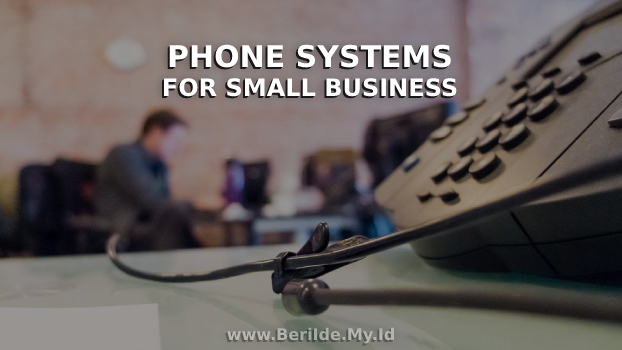Phone Systems small enterprise achievement relies upon on their capacity to talk efficaciously with customers, suppliers, and employees.
Despite the sort of communique channels available, current smartphone structures will remain an essential device for small companies.
Phone structures that meet the precise desires of small companies can decorate the client experience, boom productivity, and enhance general emblem image.
However, with such a lot of alternatives available, locating the proper small enterprise smartphone gadget may be a frightening task. We’ll cross over the primary elements you need to recollect whilst making your choice.
Importance of Phone Systems for Small Businesses
In a world where communication is so important, small businesses need a phone system that fits their unique needs.
Phone systems that are easy to use and offer powerful features can usually give small businesses a competitive edge.
With the right phone system, small businesses can improve customer service by providing timely responses and personalized experiences.
Additionally, small businesses can improve productivity with the right communication tools such as call routing, voicemail, and conferencing.
Types of Phone Systems for Small Businesses
There are many types of small business phone systems. Choosing a system depends on your company’s specific needs and budget.
The most common types of small business phone systems are:
1. VoIP Phone Systems
Voice over Internet Protocol (VoIP) phone systems use the Internet to send calls instead of traditional lines.
VoIP this offer advanced features such as voicemail, call forwarding, video conferencing, and call recording It’s also cheap and scalable, making it an ideal option for small businesses.
2. PBX Phone Systems
Private Branch Exchange (PBX) telecellsmartphone structures are conventional telecellsmartphone structures that use telecellsmartphone strains and hardware to transmit calls.
PBX telecellsmartphone structures provide superior capabilities which includes name transfer, name waiting, and convention calling. They are best for companies that require a couple of strains and feature excessive name volumes.
3. Cloud-Based
Another advantage of cloud-based phone systems is their advanced features. These systems typically offer a variety of features not available with traditional telephone systems. Call Analytics, Call Recording, Call Monitoring.
These capabilities enable businesses to better understand customer behavior, improve customer service, and increase overall productivity.
Factors to Consider When Choosing Phone Systems for Small Businesses
The following elements need to be taken into consideration whilst selecting small commercial enterprise telecellsmartphone systems:
1. Number of Employees
The number of employees in a small business can influence the choice of phone system. Companies with fewer employees may require a simpler phone system than companies with more employees.
2. Budget
Phone system cost is an important consideration for small businesses. Small businesses should choose a phone system that fits their budget and offers value for money.
3. Features and Functionality
One of the most important features of a small business phone system is call routing. This feature ensures that incoming calls are routed to the right person or department, reducing the chance of missed calls and improving customer satisfaction.
Call routing can be configured based on various criteria such as caller ID, time of day, department, and so on.
4. Scalability
Small businesses should choose a phone system that can grow with their business Your phone system should be scalable, flexible, and easy to extend and customize.
5. Customer Support
Small businesses should consider the level of customer support offered by their phone system provider. Providers must provide reliable technical support and customer service.
Common Phone Systems for Small Businesses
Small businesses need an efficient phone system to communicate effectively with their customers and team members. However, choosing the right phone system can be difficult with the many options available on the market.
Here are some common phone systems popular with small businesses:
1. VoIP Phone Systems
VoIP systems are popular with small businesses due to their cost-effectiveness, scalability, and advanced features. They use the internet to transfer calls and provide flexibility for employees to work remotely.
2. PBX Phone Systems
A PBX phone system is a traditional phone system that uses phone lines and hardware to route calls. Offers advanced features such as call waiting, call forwarding, and conference calls.
3. Cloud-Based Phone Systems
A cloud-based phone system is a type of. VoIP phone system that uses cloud technology to store and manage data It offers advanced features such as call analytics, call recording, and call monitoring.
Conclusion
A reliable phone system is essential for small businesses to communicate effectively with their customers, suppliers, and employees.
Small businesses should consider several factors when choosing a phone system for their business, including: For example, people, budget, features and functionality, scalability, customer support, etc.
VoIP, PBX and cloud-based in are the most common types of small business phone systems. Choosing the right phone system can help small businesses improve their customer experience, boost productivity, and enhance their overall brand image.

